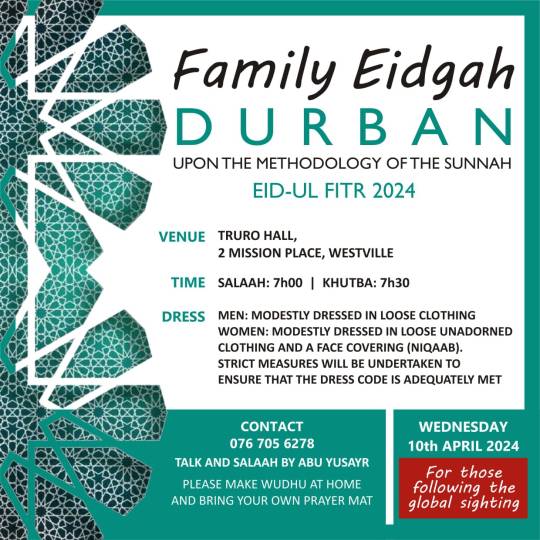#ibada
Photo

Soma Biblia: beblia.com 🙏
Sema Amina kama unakubali
Matendo ya Mitume 14:19-20
beblia.com
#biblia#mungu ni mwema#Biblia Takatifu#mkristo#Mungu#Yesu#Yesu Kristo#imani#kanisa#maisha#ukweli#anapenda#kristo#kupendwa#upendo#mstari wa biblia#maandiko#injili#ibada#neema#omba#maombi#somo la biblia#nukuu za biblia#habari njema#kubwa#makanisa#ukristo
2 notes
·
View notes
Photo

Karanta Littafi Mai Tsarki: beblia.com 🙏
Kuce Amin idan kun yarda
1 Tessalonikawa 2:3-4
beblia.com
#Littafi Mai Tsarki#allah ya kyauta#Kirista#Allah#Yesu#Yesu Kristi#imani#coci#rayuwa#gaskiya#so#Kristi#ƙaunataccen#soyayya#nassi#bishara#ibada#alheri#addu'a#labari mai dadi#mai girma#majami'u#Kiristanci
0 notes
Text
SUNDAY WORSHIP SERVICE. 24TH SEPTEMBER 2023. PART 2.
Ephesians 1:11-14 (ESV) In him we have obtained an inheritance, having been predestined according to the purpose of him who works all things according to the counsel of his will, so that we who were the first to hope in Christ might be to the praise of his glory. In him you also, when you heard the word of truth, the gospel of your salvation, and believed in him, were sealed with the promised…

View On WordPress
0 notes
Photo

"Kadere iman eden gam ve hüzünden emin olur." Şualar - 401 #dinim #l #t #instagram #ukumbusho #dinikitaplar #dinipaylasimlar #ayet #gumus #ke #hadis #kerim #ramadhan #ibada #seccade #hediyyeler #man #hzmuhammed #ehlibeyt #g #diniresimlisozler #diniminim #dinisoz #facebook #ibadet #hac #z #zikir #fet #mersiye https://www.instagram.com/p/CdyNpILDOGs/?igshid=NGJjMDIxMWI=
#dinim#l#t#instagram#ukumbusho#dinikitaplar#dinipaylasimlar#ayet#gumus#ke#hadis#kerim#ramadhan#ibada#seccade#hediyyeler#man#hzmuhammed#ehlibeyt#g#diniresimlisozler#diniminim#dinisoz#facebook#ibadet#hac#z#zikir#fet#mersiye
0 notes
Text
MIONGONI MWA KOZI ZA DIPLOMA: Foqhi ya Ibada
https://www.aia-academy.com/sw/fiqhi-ya-ibada/nguzo-za-hijja-na-umra-kuleta-talbiya Jiunge na Kozi ya FIQHI YA Ibada ili ufahamu mswala ya siku kwa siku Masomo online- Shahada ya kutambulika. Fursa bado ipo **Usilamu ni Dini ya Elimu**
0 notes
Text
Gaza vocab
Notes on Arabic words I have had to (re)learn since October 7.
دبابة -- dababa -- tank
قنّاص -- qannaS -- sniper (root means to hunt/shoot, but made into a form of expertise via the same noun form as used for trades, such as barber, حلّاق, or butcher, جزّار)
قهر -- qahr -- overwhelming grief
مشمّر -- mushammir -- up to your elbows in, super-dedicated (from the root that means to roll up your sleeves)
ثكلى (n.) or ثكلان (adj.) -- thakla, thaklan -- mother who has lost a child, or, as an adjective, bereaved (specifically of a parent who has lost a child)
الكيان الصهيوني -- al-kiyan al-Sihyuni -- the Zionist entity -- very standard media-Arabic euphemism for Israel, used for decades, but which I've inexplicably seen shared as "Iranian propaganda"
أسير (s.) / أسراء (pl.) -- aseer / usara' -- prisoner(s). From the same root that gives the word أسرة, usra, family. Mentally file with other contradictory ("contradictory") roots like طلق / taluqa, to jump for joy and to get a divorce.
إبادة -- ibada -- annihilation, genocide
انقاض -- anqaD -- rubble (pl of نقض, nuqD)

86 notes
·
View notes
Text
the first two words i ever learnt in arabic, both devastatingly important in these times:
ibada-aljamaeia — genocide
tahadath — speak up
speak up about the genocide lest you get silenced forever!!!!
20 notes
·
View notes
Text
ISLAM 101: Spirituality in Islam: Part 220
Ibada, Ubudiya, and Ubuda (Worship, Servanthood, and Deep Devotion)
Although some view worship, servanthood, and devotion as synonymous, most Sufi scholars and masters say that these words have different meanings and connotations. ‘Ibada (worship) means fulfilling God’s commands in one’s daily life and fulfilling the obligations of being His servant, while ‘ubuda (servanthood) is interpreted as living in the consciousness of being a servant. Thus one who observes his or her religious duties is called ‘abid (worshipper), while one who lives in consciousness of being a servant of God is usually called ‘abd (servant).
There is another, more subtle difference between worship and servanthood. Acts of worship consist of all financial and bodily duties: those requiring sufficient financial resources and physical ability, and that are accomplished with difficulty, in fear and hope, and with the intention of pleasing God (e.g., the five daily prayers, fasting, alms-giving, pilgrimage to Makka, offering a sacrifice, and mentioning or reciting God’s Names). A servant of God, however, understands these responsibilities or acts of worship in a different manner: each fulfillment of such a duty has a deeper (inner) dimension that require a certain degree of consciousness and awareness on the part of the servant.
The deepest dimension of religious duties and demands is devotion, which requires total care and awareness. Ibn al-Farid states: The acts of worship and duties of servanthood required by every station or rank that I have reached during my spiritual journey have been fulfilled by my devotion.
Some Sufis have defined worship as the servanthood of ordinary people, servanthood as the duty required by being a servant of God and carried out by individuals possessing insight and awareness, and devotion as the responsibility of those distinguished by their nearness to God. The first group contains those striving to advance on the path of God; the second group contains those whose mental and spiritual attitudes allow them to overcome all seemingly insurmountable obstacles and diffi-culties encountered; and the third group contains those whose mental and spiritual states cause them to turn to God whole-heartedly and with a profound feeling of being in His company.
Other Sufis have summed up the above explanations in two terms: worship of the Absolute Divine Essence, and worship of the restricted Divine Attributes. The first term means always being conscious of the relationship between the Creator and created, the Worshipped One and the worshipper, the Overseeing and the overseen, the Sustaining and the sustained, and as thinking, feeling, and acting in the most profound awareness of these relationships. The second term means fulfilling one’s daily duties as required by this awareness, which causes one’s awareness to increase. Those performing these duties can be categorized by their intention, resolution, determination, and sincerity as follows: those who desire to enter Paradise, those who hope to be rescued from Hellfire, those who love and stand in awe of God, and those who feel that they must do so as a requirement of the relationship between God as the Creator (Who alone deserves worship) and human beings (created beings who must worship their Creator).
Each group has another name: traders, slaves, lovers, and the devoted or faithful. These words of Rabi’a al-‘Adawiya, a female Muslim saint who lived during the second century of Islam, are quite appropriate:
O Lord. I swear by the beauty of nearness to You that I have not worshipped You either for fear of Hell or out of the desire for Paradise. I have worshipped You because of You.
Servanthood is a cause of honor and dignity for men and women. Nothing is more esteemed and valuable than being honored with servanthood and devotion to God. Although other, more valuable ranks may be conferred for a limited time, servanthood is constant and continuous, and therefore the most valuable rank. This is why God Almighty mentioned the best of creation, upon him be peace and blessings, in the most beautiful words: There is no deity but God, and Muhammad is His servant and Messenger, as His servant, and crowned his servanthood and these blessed words with his messengership.
Also, while inviting the Prophet, the glory of humanity and the peerless, unique one of time and creation, to honor the heavens by the Ascension, [1] He began His invitation with the complimentary phrase: He carried His servant by night (17:1), thereby referring to the matchless greatness of his servanthood. This is even more meaningful, as on this occasion when space and time were almost transcended and the all-pervasive light of Divine Grace and Beauty welcomed him, God Almighty again stressed his servanthood and declared: He revealed to His servant what He revealed (53:10).
Rumi does not present himself as a saint and an individual of profound spiritual depth, but as a servant:
I have become a servant, become a servant, become a servant;
I have bowed and doubled myself up with serving You.
Servants or slaves rejoice when they are emancipated;
Whereas I rejoice when I become a servant of You.
According to some, the following should also be considered when discussing worship and servanthood. A servant should:
– Be aware of his or her faults and worry about them even if he or she thinks that the acts of worship have been per-formed perfectly.
– Endeavor to worship perfectly, and then attribute to God whatever is achieved in the name of servanthood. Each moment of life should be spent in the awareness of his or her being a servant to the eternal Lordship of God.
– Regard all facets of existence as shadows of the Light of His existence, and never attribute to oneself the existence of anything or any accomplishment. There should be no self-pride concerning the blessings conferred, or despair concerning the withholding all spiritual gifts and radiances.
– Be aware of the honor and dignity of being attached to Him, and never imagine being honored with other kinds of ranks.
No other rank or honor is as great or as greater than servant-hood. If any rank or honor may be considered as such, it may be freedom, but only in the meaning of not setting one’s heart on anything other than God and renouncing whatever is other than Him. Those who have not made much progress on the path to God can only feel freedom, while those who have reached the destination experience it fully. I think that the true freedom to which one must aspire, one that will be appropriate for his or her grade and dignity, is this one. A friend of God draws attention to this fact:
O son! Unchain yourself and become free!
How much longer will you remain a slave of silver and gold?
Junayd al-Baghdadi warns that unless one is freed from slavery to others, one cannot attain true servanthood to God. [2] Another friend of God expresses the meaning of servanthood and freedom by advising that a servant of God should never consider others apart from God in all his or her thoughts, imaginings, feelings, and manners:
If you would like to beat the drum of honor, go beyond the wheel of stars;
As this circle filled with rings is a drum of humiliation.
O God! Enable us to attain to what is loved by and pleasing to You.
[1] The Ascension (mi’raj) was a miraculous event during which the Prophet journeyed throughout the realms of existence to God.
[2] Al-Qushayri, Al-Risala, 201.
#allah#god#islam#muslim#quran#revert#convert#convert islam#revert islam#reverthelp#help#islamhelp#converthelp#how to convert to islam#convert to islam#welcome to islam
2 notes
·
View notes
Text

Dua Between Sujood Meaning In English
Dua between sujood means O Allah forgive me, have mercy on me, guide me, support me, give me health, grant me sustenance and raise my rank.
All of this incorporates all what you need in this life and the hereafter.
Forgive me, have mercy upon me, guide me: All of this is asking Allah to what benefits you in the hereafter.
Mend my affairs and grant me health, sustenance and raise my rank: All of this in this dunya. You need this, without it you can’t go on, you can’t live.
This is how we worship Allah. This is how a proper Muslim worship Allah 24/7.
It’s not going to the Maajid on Friday and it’s not going to church on Sunday, and then the rest of the week we don’t know anything about our religion and how to deal with others.
It is a full package, it’s a package deal. You take it all or leave it all. And this is the beauty of Islam.
This is why all non Muslims come to Islam in the hundreds of thousands and in the millions. What brings them to it?
This connection between the servant and his Lord. No mediators, there’s no one in between. And this is why other religions will look into how the Muslims pray to their Lord glorifying him, not anyone else.
He has no associates, no one can come and say listen, Allah has an associate, He has a son, and this son of His created Mars or Venus. Nobody ever claimed that.
Everybody knows that it’s only Him who is the creator of the heavens and the Earth and what’s between them.
This is why we devote all of our worship and all of our love, all of our ibada, all of our gratitude and submissiveness to Him alone.
#islam#quran#islamic#muslim#islamicquotes#pakistan#islamic group#muslim community#muslim countries#istanbul#islamicpost#islamicreminder#hadith#muslim ummah#makkah#allah#muslimah#jannah#alhamdulillah#instagram
24 notes
·
View notes
Text
hindu deities + tolkienesque forenames BUT excluding "y"
Aabhirë Adacil Adagald Adaiand Adaraswar Adorn Adrasina Aegornur Aelrodil Aergoldir Agróg Aladorgon Alaldacil Alamil Alanc Alanir Albarken Aleshuvar Algalasur Algrata Alini Alirë Alorn Amborl Amilda Amline Amrapala Ancaldan Andak Andion Andionur Andiri Andis Annarka Anshmor Antini Anáin Anámalas Arahi Aranaladi Aranardan Arasvathi Aratr Ardar Ardha Ardróf Arfinvata Arinnati Armen Arund Arvenwë Ashatan Astriel Atamaruf Athôr Atrimë Augani Auganukha Auglimha Auglúth Ausindil Avatta Azagalla Bagduga Baglir Balachat Balaxmir Balcwin Balianar Balion Baranu Barapal Bardhin Barethi Beldor Belen Belestr Bellorwen Belumene Belunest Beorlana Beregri Berenu Bhaene Bhaiwen Bhalantam Bhanar Bhartië Bharumaia Bhath Bhatári Bhuan Bhush Bikan Bikar Bikum Bodha Bofundra Boldarin Boliant Bollar Brakshi Braneluil Brilmo Buddhil Budhir Bórië Calakil Caldoron Calfane Calothald Calth Caramir Carienduf Celego Celena Celend Celesalia Celfwin Celimo Cellobar Celsesa Chavarani Chaviel Chhir Cothorod Cottad Dacir Dambik Danna Delenda Dennar Denwë Deran Devia Devnamûl Dhalda Dhang Dharimlad Dhatuorti Dhauruta Dhelim Dhilútho Dorgimlin Drasomë Dreth Dusara Dáingi Déagal Déodh Díringald Eilzôn Eldachi Eldaikani Eldamji Eldaril Elebri Electha Elegortin Elena Elethir Elethodan Elfin Elinil Emnal Emnamaha Emnati Enelendir Eramûl Ergal Erindor Erugdurod Essur Estrethor Estrim Eswakhîm Eswin Eäregol Eäregolë Eärna Eärni Faron Felesta Fimil Finari Findë Finga Fingusion Forondë Fregolga Fregon Fréalagol Furat Fëant Fëanwë Fírdanth Fírië Gador Galamali Galau Ganari Ganimbel Garvisumo Gasfas Gassa Gassarais Gildomeri Gilgelros Gilzôn Gimbalmë Gimena Gimirali Glodhakar Glothas Glothis Glothor Goldowman Golor Goriel Goroder Gorta Grazog Grian Grían Gwati Hadoro Haerinel Halad Haphand Harasa Hared Havoros Hedur Helemen Heren Heswalm Hinji Hundis Húrion Húrith Ibada Ibaur Ibaurgil Imundi Ingana Inimhan Inzildbel Iramang Irindura Ishath Ishil Ishir Ishwaer Isitë Ivrin Jague Japho Jaulë Jhurgon Juníni Kalaswael Kamitar Karië Katiusir Kunditi Lacir Ladurin Laldili Lamuzga Lanor Laras Lasir Lessaur Litra Lodred Lorlia Lothenwë Luilmor Lumavi Lungolda Lurth Macir Magamdís Mahat Mahil Mahir Mahuor Mainbron Maldak Maldorth Manar Mandi Mandis Mandumant Manga Maradûn Marerionu Marion Maruf Maugdur Maugli Maupath Mavar Mavia Mehtri Mendh Mennar Menuil Merondil Mhanhír Mhavi Mielfin Milbar Milrod Miravaran Mookas Mornhen Mukhorod Mundin Munír Murvair Nahador Nakala Nalan Nalena Nambifuna Niamma Nilatius Nirith Náriel Náril Národ Nínia Nólin Nómerion Olacara Ollakalg Olórwen Orision Paladorne Palia Palir Panas Paraniel Paravion Parti Pashi Pasvarmto Peleb Pendil Peranhel Pramûl Pranor Prati Prienwë Prion Purandor Ragolcwin Rahman Ratar Raugalion Redui Rundirë Rómel Rórielen Rúthor Sadalas Sadir Sadras Saihar Saiwen Saiwenga Sakshadi Sakshir Samika Saracirma Sartha Satri Scalasir Sengeren Shatarion Shati Singrin Sivra Smaha Snornatr Someriën Svarma Swalegorn Tarahandë Taran Tarda Tarië Tatirring Thadog Thargoron Thati Thmin Thrombor Thvin Théomi Tuladita Tvane Tvangwë Tvattand Ufthos Uglajauri Ulaji Ulasfast Uldura Ulecth Ulelegue Ulfin Ulfwing Ulkalgant Umbur Umoron Undir Unduini Undur Uoldor Urund Urwendila Ushnur Vakshi Valthôn Vanarahu Vandil Vantaraji Vanárimir Vendor Venkamani Venuiner Viang Viden Videór Vinglóin Vishi Visuinar Vorgil Éothor Éowmalian Írion Óinan
1 note
·
View note
Photo

Soma Biblia: beblia.com 🙏
Sema Amina kama unakubali
1 Wathesalonike 2:3-4
beblia.com
#biblia#mungu ni mwema#Biblia Takatifu#mkristo#Mungu#Yesu#Yesu Kristo#imani#kanisa#maisha#ukweli#anapenda#kristo#kupendwa#upendo#mstari wa biblia#maandiko#injili#ibada#neema#omba#maombi#somo la biblia#nukuu za biblia#habari njema#kubwa#makanisa#ukristo
0 notes
Photo

Karanta Littafi Mai Tsarki: beblia.com 🙏
Kuce Amin idan kun yarda
2 Timoti 1:9
beblia.com
#Littafi Mai Tsarki#allah ya kyauta#Kirista#Allah#Yesu#Yesu Kristi#imani#coci#rayuwa#gaskiya#so#Kristi#ƙaunataccen#soyayya#nassi#bishara#ibada#alheri#addu'a#labari mai dadi#mai girma#majami'u#Kiristanci
0 notes
Text
SUNDAY WORSHIP SERVICE. 24TH SEPTEMBER 2023. PART 1.
Numbers 33:50-54 (ESV) And the Lord spoke to Moses in the plains of Moab by the Jordan at Jericho, saying, “Speak to the people of Israel and say to them, When you pass over the Jordan into the land of Canaan, then you shall drive out all the inhabitants of the land from before you and destroy all their figured stones and destroy all their metal images and demolish all their high places. And you…

View On WordPress
0 notes
Text
Jumu'ah Sohbet: 12 April 2024
In the lead up to Eid al-Fitr 2024, was I navigated through all kinds of resonance. However, parting with Ramadan left me feeling forlorn, I was left emotionless and hungry for continued purpose which the holy month brings.
#1. Throughout our lives, Alhamdulillah that we have been blessed to be natural child minders: your Abbu, your Aunty Lungi (who's one of my Caregivers), and me, your Ammu. Your Aunty Lungi related that in her past, at a Taxi stop, she saw another Aunty with a big bag of toys. On seeing her also going to her area, she asked what she intended to do there. The lady mentioned how she always spotted a house with a bountiful Avocado tree and a swing with numerous children playing there. She intended to gift the owner of the house.
Then, your Aunty Lungi amazedly identified that as her own home. The other Aunty then handed over her bag filled with toys, Subhana'Allah (Glory to the Divine)! She shared a deeper insight that made me grateful for Allah, allowing me to live with a greater perception of Him through continued spiritual learning in our Tariqa (spiritual school) as an accident survivor! I related that God says to us, "I am closer than your jugular vein." And when I am least able-bodied, I happen to be least distracted and focused on nurturing my relationship and connection to Allah. She said:
We see God's reflection everywhere around us, yet we stubbornly seek a more direct experience of God!
#2. Eternal gratitude to both your Abbu and our Shaykh Taner, this is possibly the first satisfying Ramadan where I completed reading our chronological edition of the Qur'an through its 30 Juz (A Juz is one of thirty parts of varying lengths into which the Qur’an is divided.)
In my past, I would be dedicated to trying, but getting lost in the annotated notes. Your Abbu would always dissuade me from doing this. However, this is the first English translated version of the Qur'an, which intrigues me by its simple depth. The fact that it's chronological, poetic yet simple, draws me into an ocean of self-reflection!

Shukran Ya Allah (Divine gratitude) for your Abbu, giving me the courage to relate to Allah. Whereas pre-accident, I felt unworthy of spiritual engagement beyond the basic forms of ibada (conventionally translated as "worship") because I couldn't relate as deeply as I now do, through Tassawuf (Sufism). It includes my delayed gratitude for Shaykh Taner, whom I regretfully, only deeply connected with close to his worldly passing. Allah, please eternally bless our Shaykh Taner for powerfully strengthening our imaan (faith) in You! Experiencing taqwa (God-consciousness) has been a transformative journey, with gratitude to our original Anne (spiritual mother) who appropriately picked it as this year's Qur'an reflection.
#3. After a 2-year hiatus, TIP as Taking Islam to the People that enabled Muslim women to participate in spiritual matters, as Muslim men do, has been reinvigorated. Moreover, as a Muslim family space, after an unfortunate incident that coalesced in our reunion. This was on realising how exclusionary women's roles are in public, spiritual spaces, especially the lack of Muslim family spaces on the spiritually heightened occasions of our annual Eid al-Fitr and Eid al-Adha.

This was what I said at the onset of our reunion:
Ya Muqtadir Ya Qadir Ya Nafi (Yearning Allah's ability to craft goodness)
Ya Wadud Ya Salaam Ya Jami Ya Nafi (which includes a reunion of some of our old energies)
Shukran Ya Allah (Divine gratitude and forwards to Allah as we move beyond patriarchy and matriarchy)

Above: Isn't it interesting that 4 Family Eidgah now exist in Durban, along with TIP's ...? The above even notes it as "UPON THE METHODOLOGY OF THE SUNNAH" However, the TIP Eidgah is the only one allowing women to move beyond their natural organising ability, into being able to share their spiritual insights alongside the men of Islam, gathered as families.

Above: Some of the founding hearts behind TIP from the blessed Eid al-Fitr morning representing a multicultural family space. Alhamdulillah for the passage of time reinforcing our value!
For the myriad of resonance that reinforce Your essential value in our lives:
Shukran Ya Allah!
0 notes
Video
youtube
Penuel Gospel Singers katika ibada ya nyumbani. Wimbo Siku zako za Maish...
0 notes
Text
ISLAM 101: Spirituality in Islam: Part 104
Ibada, Ubudiya, and Ubuda (Worship, Servanthood, and Deep Devotion)
Although some view worship, servanthood, and devotion as synonymous, most Sufi scholars and masters say that these words have different meanings and connotations. ‘Ibada (worship) means fulfilling God’s commands in one’s daily life and fulfilling the obligations of being His servant, while ‘ubuda (servanthood) is interpreted as living in the consciousness of being a servant. Thus one who observes his or her religious duties is called ‘abid (worshipper), while one who lives in consciousness of being a servant of God is usually called ‘abd (servant).
There is another, more subtle difference between worship and servanthood. Acts of worship consist of all financial and bodily duties: those requiring sufficient financial resources and physical ability, and that are accomplished with difficulty, in fear and hope, and with the intention of pleasing God (e.g., the five daily prayers, fasting, alms-giving, pilgrimage to Makka, offering a sacrifice, and mentioning or reciting God’s Names). A servant of God, however, understands these responsibilities or acts of worship in a different manner: each fulfillment of such a duty has a deeper (inner) dimension that require a certain degree of consciousness and awareness on the part of the servant.
The deepest dimension of religious duties and demands is devotion, which requires total care and awareness. Ibn al-Farid states: The acts of worship and duties of servanthood required by every station or rank that I have reached during my spiritual journey have been fulfilled by my devotion.
Some Sufis have defined worship as the servanthood of ordinary people, servanthood as the duty required by being a servant of God and carried out by individuals possessing insight and awareness, and devotion as the responsibility of those distinguished by their nearness to God. The first group contains those striving to advance on the path of God; the second group contains those whose mental and spiritual attitudes allow them to overcome all seemingly insurmountable obstacles and diffi-culties encountered; and the third group contains those whose mental and spiritual states cause them to turn to God whole-heartedly and with a profound feeling of being in His company.
Other Sufis have summed up the above explanations in two terms: worship of the Absolute Divine Essence, and worship of the restricted Divine Attributes. The first term means always being conscious of the relationship between the Creator and created, the Worshipped One and the worshipper, the Overseeing and the overseen, the Sustaining and the sustained, and as thinking, feeling, and acting in the most profound awareness of these relationships. The second term means fulfilling one’s daily duties as required by this awareness, which causes one’s awareness to increase. Those performing these duties can be categorized by their intention, resolution, determination, and sincerity as follows: those who desire to enter Paradise, those who hope to be rescued from Hellfire, those who love and stand in awe of God, and those who feel that they must do so as a requirement of the relationship between God as the Creator (Who alone deserves worship) and human beings (created beings who must worship their Creator).
Each group has another name: traders, slaves, lovers, and the devoted or faithful. These words of Rabi’a al-‘Adawiya, a female Muslim saint who lived during the second century of Islam, are quite appropriate:
O Lord. I swear by the beauty of nearness to You that I have not worshipped You either for fear of Hell or out of the desire for Paradise. I have worshipped You because of You.
Servanthood is a cause of honor and dignity for men and women. Nothing is more esteemed and valuable than being honored with servanthood and devotion to God. Although other, more valuable ranks may be conferred for a limited time, servanthood is constant and continuous, and therefore the most valuable rank. This is why God Almighty mentioned the best of creation, upon him be peace and blessings, in the most beautiful words: There is no deity but God, and Muhammad is His servant and Messenger, as His servant, and crowned his servanthood and these blessed words with his messengership.
Also, while inviting the Prophet, the glory of humanity and the peerless, unique one of time and creation, to honor the heavens by the Ascension, [1] He began His invitation with the complimentary phrase: He carried His servant by night (17:1), thereby referring to the matchless greatness of his servanthood. This is even more meaningful, as on this occasion when space and time were almost transcended and the all-pervasive light of Divine Grace and Beauty welcomed him, God Almighty again stressed his servanthood and declared: He revealed to His servant what He revealed (53:10).
Rumi does not present himself as a saint and an individual of profound spiritual depth, but as a servant:
I have become a servant, become a servant, become a servant;
I have bowed and doubled myself up with serving You.
Servants or slaves rejoice when they are emancipated;
Whereas I rejoice when I become a servant of You.
According to some, the following should also be considered when discussing worship and servanthood. A servant should:
– Be aware of his or her faults and worry about them even if he or she thinks that the acts of worship have been per-formed perfectly.
– Endeavor to worship perfectly, and then attribute to God whatever is achieved in the name of servanthood. Each moment of life should be spent in the awareness of his or her being a servant to the eternal Lordship of God.
– Regard all facets of existence as shadows of the Light of His existence, and never attribute to oneself the existence of anything or any accomplishment. There should be no self-pride concerning the blessings conferred, or despair concerning the withholding all spiritual gifts and radiances.
– Be aware of the honor and dignity of being attached to Him, and never imagine being honored with other kinds of ranks.
No other rank or honor is as great or as greater than servant-hood. If any rank or honor may be considered as such, it may be freedom, but only in the meaning of not setting one’s heart on anything other than God and renouncing whatever is other than Him. Those who have not made much progress on the path to God can only feel freedom, while those who have reached the destination experience it fully. I think that the true freedom to which one must aspire, one that will be appropriate for his or her grade and dignity, is this one. A friend of God draws attention to this fact:
O son! Unchain yourself and become free!
How much longer will you remain a slave of silver and gold?
Junayd al-Baghdadi warns that unless one is freed from slavery to others, one cannot attain true servanthood to God. [2] Another friend of God expresses the meaning of servanthood and freedom by advising that a servant of God should never consider others apart from God in all his or her thoughts, imaginings, feelings, and manners:
If you would like to beat the drum of honor, go beyond the wheel of stars;
As this circle filled with rings is a drum of humiliation.
O God! Enable us to attain to what is loved by and pleasing to You.
[1] The Ascension (mi’raj) was a miraculous event during which the Prophet journeyed throughout the realms of existence to God.
[2] Al-Qushayri, Al-Risala, 201.
#allah#god#islam#muslim#quran#revert#convert#convert islam#revert islam#reverthelp#revert help#revert help team#help#islamhelp#converthelp#new muslim#new revert#new convert#how to convert to islam#convert to islam#welcome to islam
3 notes
·
View notes